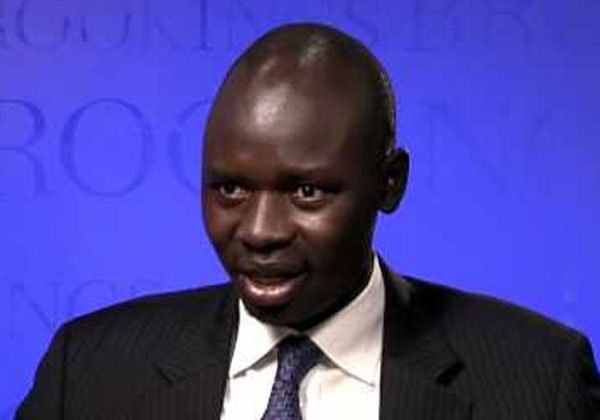Rights groups in South Sudan are calling for the unconditional release of prominent South Sudanese political commentator and youth leader Peter Biar Ajak who was arbitrarily arrested and detained by the South Sudan National Security Service last Saturday.
Peter Biar Ajak, the founder of South Sudan Young Leaders Forum, a group that seeks to mobilize and organize youth to realize a peaceful South Sudan was arrested at Juba international airport while trying to travel to Aweil town to attend a Red Army commemoration day on Sunday.
The rights group, the Centre for Peace and Justice (CPJ) Executive Director Tito Anthony in a statement extended to Radio Tamazuj said Biar’s detention is “illegal and politically motivated.”
Anthony said, “The arbitrary detention of Peter Biar is not only a violation of his freedom of movement but is also violation of the constitution which is the country supreme law.”
“I call on the national security to repeal all provisions in the national security act 2014 that give the national security officer unlimited and unconstitutional power to arrest anyone without arrest warrant,” the statement read.
The human rights activist further appealed to the national security to transfer any case they may have against Biar to the police so that he can have access to his lawyer.
The Community Empowerment for Peace Organisation, CEPO also added their voice calling for the immediate release of the youth leader.
"CEPO is calling for the immediate release of Peter Biar and he should be taken to the competent court of law in case he breaks the law. It is an unfortunate situation that at the time we are seeking peace still the individuals are facing arrest. In an honourable and kind manner CEPO is urging the leadership of NSS to either release Peter Biar or take him to the court of law,” CEPO Executive Director Edmund Yakani said in a statement.
In April, the two governors of Aweil and Aweil East states in Northern Bahr al Ghazal region refused to grant permission to Peter Biar and his colleagues to hold meetings with local youth in Aweil and Wanyjok towns, citing the decline of higher authorities in Juba.




